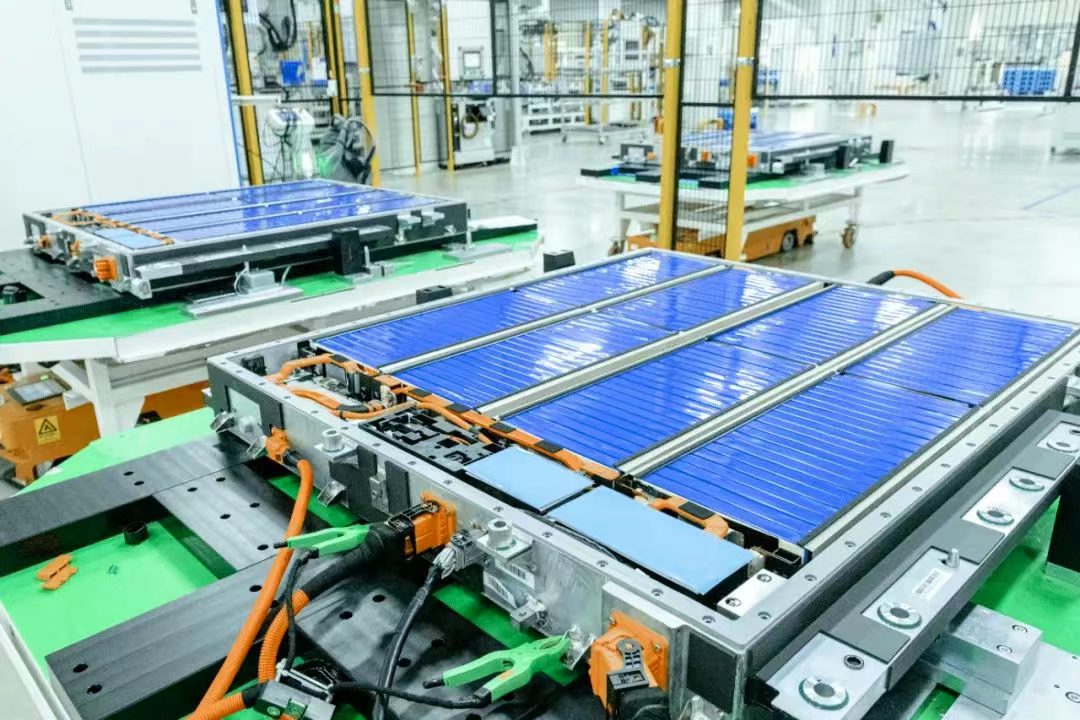On July 22, Yang Hongxin, Chairman of Honeycomb Energy, revealed that the company is fully advancing the research and mass production of solid-state batteries. They plan to conduct trial production of the first generation of semi-solid batteries with a capacity of 140Ah on their 2.3GWh semi-solid production line in the fourth quarter of 2025. This battery not only marks a significant breakthrough in solid-state battery technology for Honeycomb Energy but will also serve as the dedicated battery for BMW's next-generation MINI models, expected to be supplied on a large scale starting in 2027, injecting new vitality into the electric vehicle market. Additionally, Honeycomb Energy has other plans in the semi-solid battery field, aiming to mass-produce the first generation of soft-pack batteries with an energy density of 300Wh/kg this year, which boasts significant cost advantages. The second generation of semi-solid batteries will improve energy density to 360Wh/kg with a capacity of 78Ah. In terms of all-solid-state batteries, the first generation of their products will achieve an energy density of 400Wh/kg with a capacity of 68Ah, primarily targeting applications in low-altitude flight and automotive sectors. All-solid-state batteries, known for their higher energy density and better safety, are seen as the future direction of battery technology. Honeycomb Energy's early positioning in this field undoubtedly gives it an advantageous position in future market competition. Honeycomb Energy's solid-state battery initiatives are not isolated. Since July, several listed companies in the A-share market have disclosed their latest advancements or timelines in the solid-state battery sector, indicating a booming industry. For instance, Funeng Technology announced it expects to complete a pilot line for sulfide all-solid-state batteries with a designed capacity of 0.2GWh by the end of this year and deliver 60Ah sulfide all-solid-state batteries to strategic partners. The company plans to further expand its all-solid-state battery production capacity to GWh-level by 2026. Changan Automobile also anticipates achieving vehicle validation for solid-state batteries by 2026 and gradually ramping up mass production by 2027, with an energy density reaching 400Wh/kg. Delong Technology has also stated that its solid-state batteries have passed UN38.3 certification, laying a foundation for subsequent international market expansion, and is actively advancing the construction of its solid-state battery pilot line. Positive signals are also emerging from material and equipment sectors. The solid-state battery dedicated material project by Qingtao (Wuhai) Energy Technology Co., Ltd. has entered the trial production stage, while the first batch of production equipment for Sichuan Saike Power Technology Co., Ltd.'s Phase I project has successfully arrived and is about to undergo installation and debugging. These projects provide a solid material and equipment guarantee for the mass production of solid-state batteries. According to statistics from Guotou Securities, the shipment volume of China's solid-state battery industry is expected to grow to 11.1GWh by 2025, with projections reaching 614.1GWh by 2030, indicating significant market potential. As solid-state battery technology continues to mature and the mass production process accelerates, its market space in emerging applications such as new energy vehicles, low-altitude flight, robotics, and AI will further open up, with industrialization likely to speed up.
Honeycomb Energy Accelerates Development of Solid-State Batteries

Share this post on: